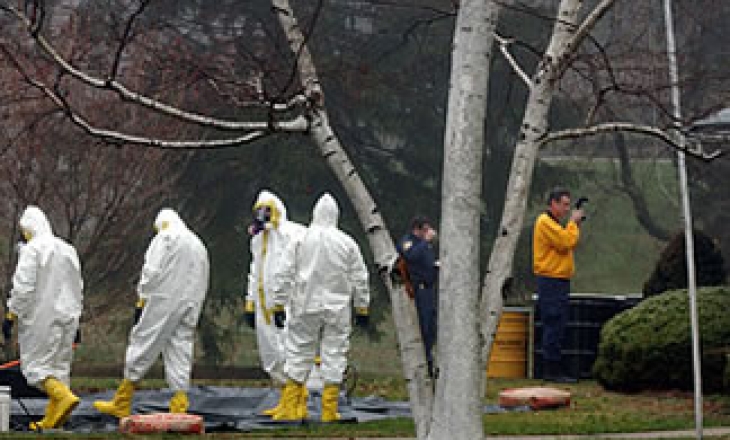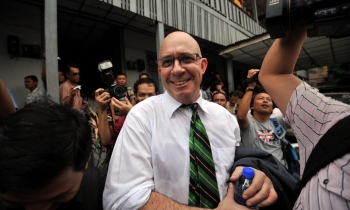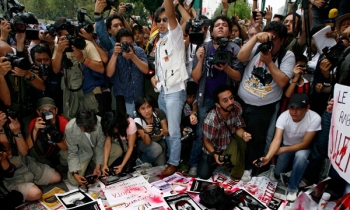A federal appeals court in the US on Monday threw out a contempt order requiring fines of up to $5,000 a day against a former USA Today reporter who refused to identify sources for stories about the 2001 anthrax attacks, the Associated Press (AP) has reported.
Toni Locy had been ordered by a judge to personally pay the fines unless she identified officials who discussed Steven J Hatfill, who was named a person of interest in the anthrax attacks but was eventually exonerated by the Justice Department.
Hatfill sued the government for violating the Privacy Act when his name was leaked to the press as a “person of interest” in the 2001 anthrax attacks, according to the Virginia-based Reporters Committee for Freedom of the Press (RCFP).
In the course of his lawsuit, he subpoenaed Locy, as well as other reporters, for the confidential sources from the government. Last summer, Hatfill settled the Privacy Act claim with the government for $5.8. Meanwhile, the District Court in Washington, DC, held Locy in contempt and imposed a daily fine.
Hatfill filed a motion to dismiss in September but Locy had urged the Court of Appeals to decide her case, arguing that the reporters privilege issues needed to be determined. The Court of Appeals on Monday agreed with Hatfill and held that there was no reason to decide whether Locy’s sources are privileged because Hatfill and the government had settled the case, thus the sources were no longer needed, according to RCFP.
However, the court vacated the contempt order, thus eliminating the fear that the case would become negative precedent for reporter's privilege in DC.
The court acknowledged that the case raised important questions over the scope of the reporter’s privilege but held that: “Because the underlying case has been settled, however, there is no longer a “pending trial in which” the appellee’s request for disclosure “can be used.””
Besides holding her in contempt of court, the District Court decision also held that Hatfill may seek attorney fees from Locy—which would end up being more expensive than any contempt fines, according to RCFP. Now that the contempt order has been vacated, it is presumed that Hatfill cannot seek attorney's fees from Locy, because he cannot show he substantially prevailed in the litigation.
In another development Monday, US District Judge Royce Lamberth ordered the Justice Department to release the information it used to persuade the courts to let it search Hatfill's home. Lamberth said the government's search warrants and supporting documents relating to Hatfill and his then-girlfriend Peck Chegne should be made public, the AP report said. [Link]
The New York Times and the Los Angeles Times asked for the materials to be released, contending the public has a right to know why investigators wanted to search Hatfill's home and on what basis the courts agreed to allow those searches.
Five people were killed and 17 sickened when anthrax was mailed to Capitol Hill lawmakers and members of the media just weeks after the Sept. 11, 2001, terrorist attacks.
After the attacks, Attorney General John Ashcroft called Hatfill "a person of interest" in the investigation, and stories by various reporters, including Locy, followed. Hatfill had worked at the Army's infectious diseases laboratory from 1997 to 1999.










